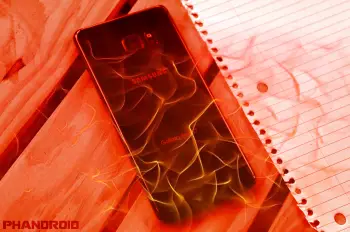
Will the Pixel rise from the ashes of Samsung’s Galaxy Note 7?
2016 has been a good year for many Android fans. We got an incredible Samsung Galaxy S7 and S7 edge combo, a decent HTC 10, the budget-friendly OnePlus 3 and the modular (if you think snap-on accessories really count) Moto Z. The LG G5 was a dud, but the biggest disappointment of the year has been the explosive Samsung Galaxy Note 7.
Samsung’s Note series has played a huge role in the development of Android over the years. The Note popularized the concept of the phablet and has been considered a must-have device for Android enthusiasts who want the newest technology smartphone manufacturers have to offer. Unfortunately for Samsung, the Note 7 crashed and burned (literally) due to battery issues and has pulled it from the market.
But the death of the Samsung Galaxy Note 7 may create the perfect environment for the Google’s new Pixel phones to thrive in. With 2.5 million Samsung Galaxy Note 7 owners looking for a new device, the launch of the Pixel may have come just at the right time. There are plenty of Note 7 owners who will choose to stay with Samsung, but a recent survey of 1,000 Samsung smartphone owners shows 40% of them are likely to switch brands when purchasing their next device. On top of that, the Note 7 being pulled from store shelves leaves a huge void in the high-end smartphone segment.
This is great news for Google as the Pixel XL is one of the few devices which matches the price, size and performance of the Note 7. Google should be able to pick up quite a few disgruntled Samsung users due to the Note 7 recall, but the void left by the absence of Samsung’s flagship smartphone may prove to be even more important to the success of the Pixel.
The Pixel XL is a great alternative to the Note 7
The fundamental selling points of the Samsung Galaxy Note 7 and Pixel XL may be different, but the two phones have quite a bit in common and there are a few advantages that the Pixel XL has over the Note 7. The obvious drawback of the Pixel XL is that it lacks the Note 7’s S Pen. This will definitely be a deal breaker for those who purchased the Note 7 for its S Pen functionality. If you fall into that category, the only real option at your disposal is last year’s Note 5. LG does have a few smartphones which are bundled with a stylus, but none of them come close to matching the functionality of the S Pen.
The Pixel’s main selling point is its gimmick-less simplicity. It’s the Android alternative to the iPhone, but in a good way. The software is clean, the camera is good, the hardware is fast and responsive and the design is simple, yet elegant.
Since the Note 7 isn’t really an option anymore, the only real alternatives are the Pixel XL, Samsung Galaxy S7 edge and LG V20. Samsung’s Galaxy S7 edge has the advantage when it comes to design, but the Pixel takes the lead on the camera front, performance, the new Google Assistant, software updates directly from Google and great battery life. The LG V20 is a great contender as well, but LG has had a tough time convincing consumers to buy its flagship-tier smartphones as of late.
Verizon exclusivity will hold the Pixel back
Initial estimates showed that Google would likely sell 3-4 million Pixel phones in 2016. Now that the Note 7 is out of the picture, there’s a good chance that the HTC-built Pixel phones will sell event better. But there is a slight problem: Verizon is the only service provider in the US which will be selling the Pixel phones at launch. Signing a deal with Verizon to help promote and selling the Pixel may have been a good idea a few months back, but the Note 7’s recall has changed the landscape significantly.
Verizon may be the largest service provider in the US with 35% of the market, but only a handful of consumers will be willing to leave their current service provider and join Verizon to purchase the Pixel or Pixel XL. Unlocked versions of the Pixel phones are available online, but the majority of US customers are still inclined to purchase a new smartphone from their service provider.
The Pixel’s success isn’t assured
The death of the Samsung Galaxy Note 7 doesn’t guarantee that the Pixel will be a smash hit, but it does give Google a much better chance at establishing a good foothold in the high-end smartphone segment. Google will have to work hard if it wants to capitalize on the situation since Samsung will be fighting tooth and nail to retain market share.
With a million and one factors which determine the success or failure of a device, it’s impossible to know if the death of the Note 7 will be the spark needed for Google’s Pixel phones to rise to prominence. Hopefully, Google plays its cards right with this unique opportunity it’s been handed.